Regional Equity Key for Transportation Funding Plan
A consensus approach to delivering additional transportation revenue is emerging, with overwhelming support from the business community, municipal officials and transportation advocates.
A consensus approach to delivering additional transportation revenue is emerging, with overwhelming support from the business community, municipal officials and transportation advocates.
The U.S. House of Representatives may be neck-deep in impeachment hearings, but fear not the dinner table political discussion! This year, there is something everyone in Greater Boston can agree on.

A complex 1.3 million-square-foot office and residential development next to the MBTA’s Back Bay Station could break ground as soon as late winter.
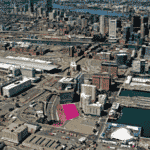
Seven developers have submitted proposals for a 600,000-square-foot mixed-use project on Massport’s parcel H in Boston’s Seaport District.
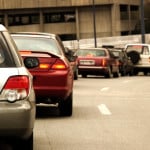
It’s not clear all Gov. Charlie Baker’s fellow governors are on board with his regional approach to taxing cars’ carbon emissions, putting a big chunk of future transportation funding in doubt.

With just days remaining until the legislature recesses until 2020, House Speaker Robert DeLeo said Thursday he’s decided to push back his timeline for a hotly anticipated debate over new revenue for transportation until next year.

Massachusetts voters support raising new revenue to make transportation investments, but a new poll shows they are divided over some of the key methods that lawmakers are weighing to generate funding.
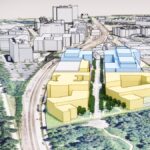
A Boston developer is proposing a six-building, 1 million-square-foot multifamily and life science development in one of Cambridge’s last industrial neighborhoods, including an offer to build a pedestrian and bicycle bridge improving access to the MBTA’s Alewife station.

Dozens of Boston-area municipal leaders on Wednesday endorsed new or expanded transportation revenue options, including a 15-cent increase in the state’s 24-cent per gallon gas tax, as House lawmakers approach a vote on the topic.

With a vote possible in the House next week on a transportation revenue bill, the details of such a package remain in development and its possible components include measures dealing with the gas tax and ride-share fees.

A group of 357 scientists say majority-minority cities and neighborhoods are exposed to 66 percent more of a deadly type of pollutant produced by cars, called PM2.5, that can cause cardiovascular and respiratory illnesses, and early death.

A North Andover developer is kicking off permitting for a 84-unit apartment complex steps from the MBTA’s Newburyport commuter rail station.
The state needs better transit. Better transit needs more money. What happens when you tell this to certain Bay State political leaders?
A consensus is emerging: More revenue is needed to improve our infrastructure, but also should be designed to influence behavior with an overarching goal of getting cars off the road and increasing the use of public transit.

Gov. Charlie Baker this week said he wouldn’t support a “big increase” in the gas tax but that doesn’t mean the governor supports any increase in that levy.
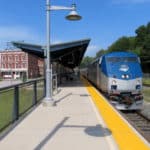
If Massachusetts is going to invest in fixing the MBTA, as it appears leading lawmakers intend to, then state officials also needs to invest in an east-west rail connection, U.S. Rep. Richard Neal told business leaders in Boston Thursday morning.

Owners of a 7-year-old craft beer company are eyeing Somerville’s fast-transforming Boynton Yards neighborhood for their first brick-and-mortar location.

As state leaders try to figure out how to pay for the investments advocates – and now business and transportation leaders – say Massachusetts needs to fix its current traffic nightmare, stay economically competitive and decarbonize its economy, a new report from A Better City outlines one possible solution.
State Sen. Will Brownsberger, who served on the committee that analyzed commuter rail revamp options for the MBTA, believes that not every rail line has enough customer demand to support all-day service every 15 to 20 minutes.
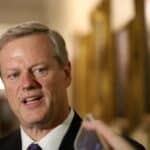
With House Speaker Robert DeLeo eyeing a vote in the coming weeks on new transportation revenue, Gov. Charlie Baker on Monday said a “big increase” in the gas tax would be a non-starter for his administration.